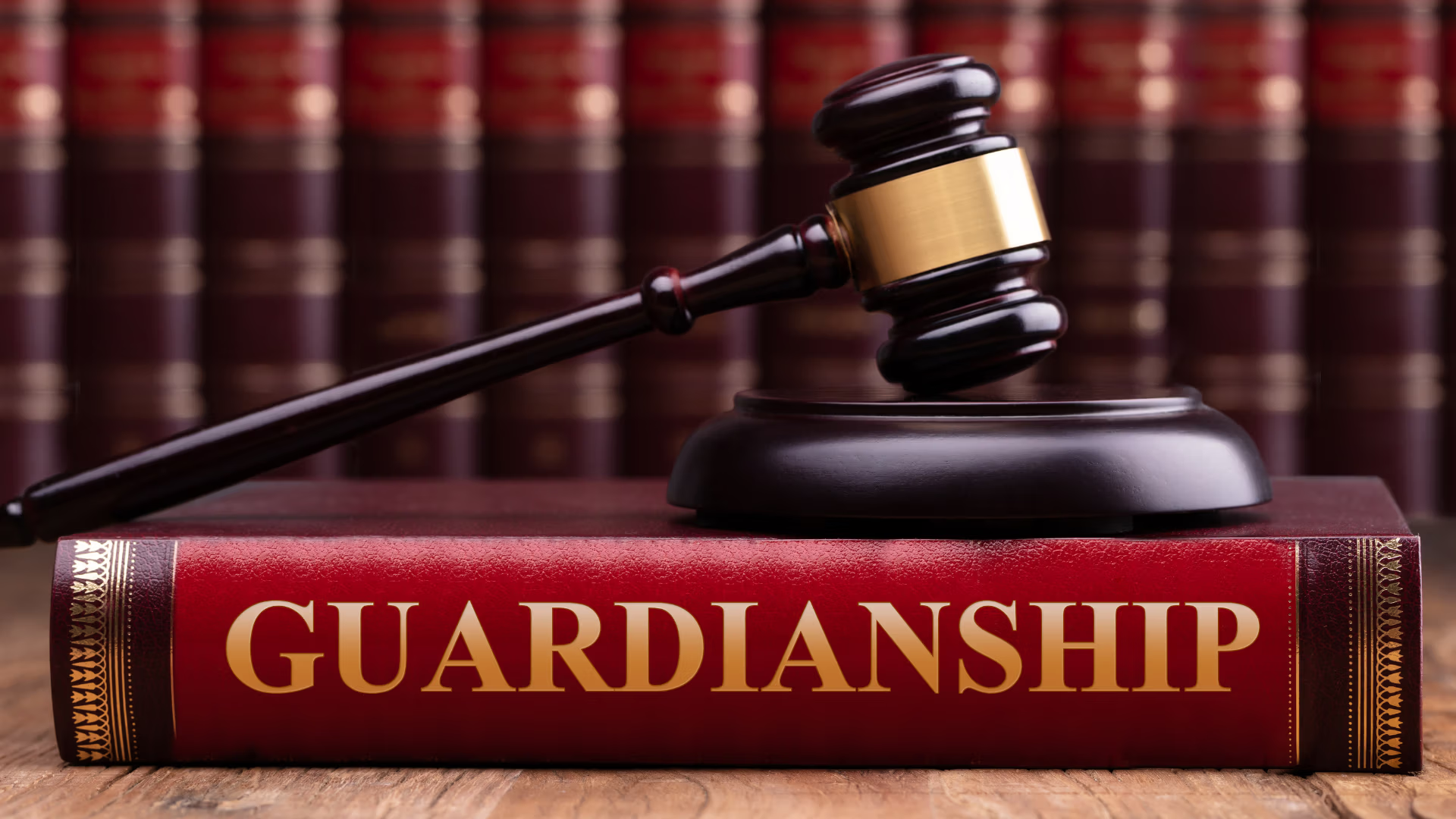Guardianship and Conservatorship in Virginia

Quick Overview
Every family hopes their loved ones can manage their own lives independently. But life sometimes has other plans. Imagine a devoted mother in whose 18-year-old son has severe autism. As he approaches adulthood, she realizes that once he turns 18, she will no longer have the automatic legal authority to make medical or educational decisions for him. In another family, picture a middle-aged daughter watching her 85-year-old father struggle with dementia – bills unpaid, medications forgotten, and strangers attempting to take financial advantage. These scenarios are heart-wrenching, but they are not hopeless.
Virginia’s laws on guardianship and conservatorship provide a way for caring family members to step in and protect their incapacitated or special needs loved ones. In this guide, we’ll break down what guardianship and conservatorship in Virginia mean, when they are necessary, how the court process works, and how you can plan for and navigate this challenging journey. Our goal is to give Virginia families the knowledge they need to make informed decisions – and to show that you don’t have to face these legal complexities alone.
If you’re worried about a vulnerable loved one and need legal guidance, contact a Waynesboro guardianship attorney at Prior Law for compassionate help.
Call (540) 440-1001 to schedule a free consultation.
- Guardian: Makes personal and health decisions for an incapacitated adult. Examples include living arrangements, medical consent, care plans, and safety.
- Conservator: Manages money and property for the incapacitated adult. Examples include paying bills, managing bank and investment accounts, protecting assets, and signing financial documents.
- These roles can be combined or split. Courts tailor orders to the person’s actual needs and must use the least restrictive option that protects the individual.
- Guardianship and conservatorship require a Circuit Court order. The process includes notice to family, an investigation by a Guardian ad Litem, and a judicial finding of incapacity.
When Guardianship or Conservatorship Is Needed
Virginia courts reserve these remedies for genuine incapacity. Incapacity means the person cannot effectively receive, evaluate, or communicate information to meet essential requirements for health or safety or to manage finances. The standard is functional. Bad choices alone do not equal incapacity.
Common patterns:
- Special needs at 18. Parents lose automatic authority when a child turns 18. If the young adult cannot reliably make or communicate medical or educational decisions, a limited or full guardianship may be needed. A conservatorship may not be necessary if money is limited to benefits and a representative payee arrangement will suffice.
- Elder cognitive decline. Dementia, stroke, or other conditions can lead to unpaid bills, medication errors, unsafe wandering, or exposure to scams. A guardian can authorize safe placement and care. A conservator can stabilize finances, protect income, and pay for services.
- Adults with serious illness or injury. Traumatic brain injury, severe psychiatric illness, or degenerative disease may require court authority. Emergency orders can bridge immediate risks until a full hearing is held.
Courts must consider less restrictive alternatives first. If a valid durable power of attorney and advance directive already cover the need, formal guardianship may be unnecessary.

Less Restrictive Alternatives
Before removing rights, courts and families should examine:
- Durable financial power of attorney and advance medical directive with a health care agent.
- Supported decision-making arrangements where the adult chooses supporters but keeps final decision-making.
- Representative payee for Social Security or VA benefits.
- Practical supports such as care agreements, automatic bill pay, and in-home services.
If these tools adequately protect the individual, the court should avoid guardianship or limit it to true gaps.
How to Obtain Guardianship or Conservatorship in Virginia

Proceedings occur in the Circuit Court where the person resides or last resided before placement.
1) File the petition
Any interested person may petition. The petition identifies the respondent, describes impairments and risks, names next of kin, and requests a guardian and or conservator with specific powers. If limited relief will do, ask for a limited order.
2) Guardian ad Litem investigation
The court appoints a Guardian ad Litem to meet the respondent, review records, interview involved parties, evaluate less restrictive options, and report to the court. If the respondent requests counsel or the GAL recommends it, counsel is appointed.
3) Provide required notice
The respondent is personally served with the petition and hearing date. Close family receive mailed notice at least 10 days before the hearing. The respondent has the right to attend and to counsel.
4) Medical evidence
A current evaluation from a licensed physician or psychologist typically addresses diagnoses, cognition, functional limits, and the need for a guardian and or conservator. Family testimony and concrete examples of risk are helpful.
5) Hearing and order
The judge decides whether the respondent is incapacitated and whether guardianship or conservatorship is the least restrictive way to meet the need. If granted, the order specifies the appointee, powers, any limits, and reporting duties.
6) Qualification and bond
The appointee takes an oath before the clerk and receives certificates of qualification. Conservators usually must post a surety bond based on asset value. The clerk issues letters to show banks, hospitals, schools, and others.
7) Timeline and periodic review
In straightforward cases, expect a few weeks to a couple of months depending on scheduling and investigation. Virginia requires periodic review hearings. These check-ins assess whether the order remains necessary and properly tailored.

Duties and Oversight After Appointment
Virginia provides ongoing oversight to protect the incapacitated person and guide the fiduciary.
Guardian reporting and contact
- A guardian files an initial report within six months (covering the first four months) with the local Department of Social Services, then files annually. Reports address condition, placement, services, restrictions on communication, and whether the guardianship should continue.
- Guardians must maintain regular contact. At minimum, visit the person at least three times per year and at least once every 120 days. At least one visit must be in person. Stay informed about capabilities, needs, and limitations. Encourage participation in decisions and independence to the extent feasible.
Communication and visitation limits
A guardian may restrict communication or visitors only when necessary to prevent harm and only to the least extent needed. The guardian should consider the person’s wishes and must give written notice to the person and the restricted individual explaining the reason, scope, and how to request court review.
Conservator inventory and annual accounting
- A conservator files an inventory shortly after qualification listing assets at the start of the conservatorship.
- Annual accountings are filed with the Commissioner of Accounts showing receipts, disbursements, and assets on hand. Keep meticulous, separate records and do not commingle funds. Use a fiduciary-titled account.
Major decisions that require court approval
Some actions require prior court authorization. Examples include sterilization, certain mental health admissions, moving the person’s residence out of Virginia, changes to parental rights, or changes in marital status. Sales of real estate or other major transactions often require approval unless the order or statute clearly authorizes them. When in doubt, seek guidance.
Guardian training requirement
Beginning in 2025, newly appointed guardians must complete a DARS-developed training within 120 days of qualification. Guardians appointed before July 1, 2025, must complete it by January 1, 2027. Retain the certificate and confirm completion in reports.
Compliance matters
Failure to report or account can trigger court action. The court can order corrective steps, suspend or remove a fiduciary, and impose liability for losses. Timely, accurate filings both protect the incapacitated person and protect you.
Special Needs Guardianships at Age 18
Parents of children with developmental or intellectual disabilities face a legal transition at 18. Consider these points:
- Start early. Begin planning at 17 to avoid gaps in authority near the birthday.
- Scope. Seek limited guardianship if the young adult can make some choices. Preserve rights where possible.
- Conservator versus payee. If finances are limited to benefits, a representative payee arrangement may suffice without a conservatorship. If assets or inheritances are expected, plan for a conservator or a special needs trust managed by a trustee.
- Coordinate services. Participate in IEP transition planning and connect with adult services through DARS, the Community Services Board, and Medicaid waivers.
- Empower the adult. Involve them in decisions to the extent they can participate. Guardianship is a safety net, not a blanket removal of voice or dignity.
Virginia favors least restrictive solutions. Supported decision-making concepts can guide families even without a formal statute by keeping the adult involved wherever possible.

Elder Guardianships: Safety with Dignity
For elders, warning signs often accumulate: unpaid bills, unsafe meals or hygiene, wandering, falls, or susceptibility to scammers. If practical supports and existing documents are not enough, guardianship and conservatorship can prevent harm.
- Address family dynamics. Not all relatives agree on capacity or risk. Independent evaluations help. The court will hear all sides and focus on the elder’s safety and rights.
- Choose capable appointees. Often one adult child is better suited for personal decisions and another for finances. Co-fiduciaries can share work but may add complexity. Courts can appoint neutral professionals when needed.
- Preserve quality of life. Frame decisions around dignity. Involve the elder where possible, allow choices, and maintain social contact consistent with safety. Isolation should be exceptional and carefully justified.
- Honor health care wishes. If an advance directive exists, follow it. Without one, decide based on known values or the person’s best interests.
Guardianship protects; it is not punishment. Used correctly, it keeps someone safe while preserving as much autonomy as possible.
Planning Ahead to Avoid a Crisis
The best way to reduce the need for guardianship is to plan while you have capacity.
- Sign a durable financial power of attorney that is broadly drafted and accepted by institutions.
- Sign an advance medical directive naming a health care agent and documenting wishes.
- Coordinate trusts and beneficiary designations where appropriate.
- Discuss preferences with loved ones so your future agents understand your values.
These steps often allow families to manage health and finances without court intervention. If circumstances later outgrow these tools, guardianship remains the safety net.
Focused FAQs
What is the difference between a guardian and a conservator?
A guardian makes personal and health decisions. A conservator manages money and property. One person can do both roles, or the court can split them.
How do I start a guardianship case?
File a petition in the proper Circuit Court. The court appoints a Guardian ad Litem, notice goes to the respondent and family, medical evidence is obtained, and a hearing is held. If granted, you qualify with the clerk and receive certificates to act.
When is an emergency guardianship appropriate?
When immediate action is needed to prevent harm and there is no existing legal decision-maker who can act. These orders are temporary and followed by a full proceeding.
Can a guardianship be limited, changed, or ended?
Yes. Courts tailor orders to actual needs and can modify or terminate when capacity improves or circumstances change. Virginia requires periodic review hearings in many cases.
What ongoing filings are required?
Guardians file an initial and then annual personal status report. Conservators file an inventory and annual accountings with the Commissioner of Accounts. Keep detailed records and meet all deadlines.
Do I always need a conservator for a special needs adult?
Not necessarily. If finances are limited to benefits, a representative payee may be enough. If assets exist or are expected, consider a conservatorship or a special needs trust.
What decisions require court approval?
Certain major medical, personal, and financial decisions. When unsure, consult counsel before acting.
How Prior Law Helps
- Assessment and strategy. We evaluate whether a less restrictive alternative can solve the problem or whether a limited order will suffice.
- Petitions and hearings. We prepare filings, organize medical evidence, coordinate with the Guardian ad Litem, and represent you at hearings.
- After appointment. We set up reporting systems, help with inventories and accountings, advise on placement and service coordination, and guide you through reviews and modifications.
- Special needs and elder law integration. We align guardianship with benefits planning, special needs trusts, and long-term care planning.
Schedule Your Free consultation or Call Prior Law at (540) 440-1001 to discuss your situation and next steps.
Acting promptly can prevent harm and provide clarity for your family.

